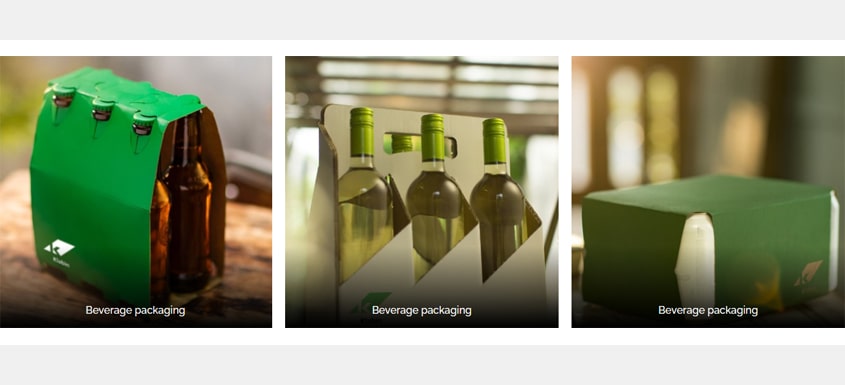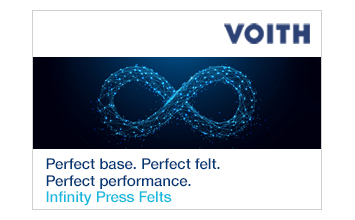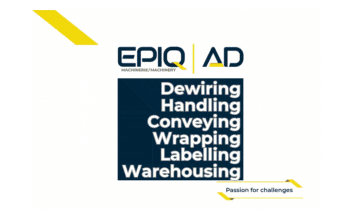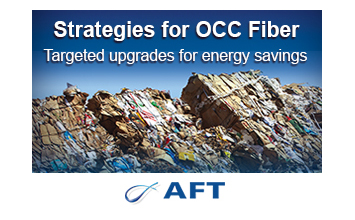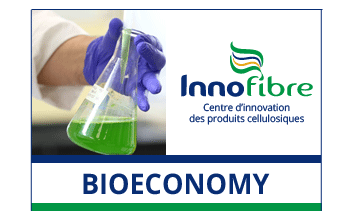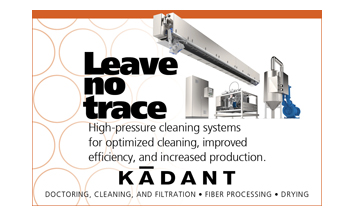Targeted at the beverage market, this packaging requires high tear resistance and printing quality
São Paulo, June 20, 2022 – Committed to bringing innovative and sustainable solutions to the market, Klabin, Brazil’s largest producer and exporter of packaging paper and paper packaging, has developed a new version of its paperboard Klamulti, designed for beverage packaging (multipack), which now has microfibrillated pulp (MFC) in its composition. This innovation, led by the Product Development and Technology Center teams at Klabin, was produced at the MFC plant located in Telêmaco Borba, Paraná.
Experiments proved that the addition of MFC in the paperboard composition significantly improves the product’s properties and performance while also reducing grammage. As such, the new solution is capable of creating lighter and more resistant packaging, enhancing the efficiency of the material. The MFC production process develops the microfibrillation of the walls of pulp fibers, enabling a wider connection area between them, thereby increasing the paper’s mechanical strength.
“Klabin’s paperboard lines use different fiber compositions to ensure the best balance between stiffness, structure, resistance and printing quality. Each version of the portfolio was carefully developed to produce the best results in our clients’ processes. Enhancing these features by optimizing resources is one of the Company’s differentials,” said Flavio Deganutti, executive officer - Paper Business at Klabin.
One of Klabin’s proposals is to make the most of forest resources in order to diversify the use of wood components, which will strengthen the Company’s portfolio and create opportunities to operate in new markets for renewable and sustainable products.
“Klabin aspires to be the benchmark in responsible solutions that meet the constant transformations in society, and innovation is an important driver of our business evolution. Offering innovative packaging solutions consolidates the role of paper as the leader in this segment and underlines our vocation for creating a more sustainable future,” said Francisco Razzolini, director of Industrial Technology, Innovation, Sustainability and Projects at Klabin.
This is not the first time that Klabin uses MFC in an innovative manner. Back in 2014, the Company started developing the use of MFC in its products, albeit on a laboratory scale. With the inauguration of the Klabin Technology Center in 2017, the focus was on increasing the scale of production of the component, which accelerated the operational startup of the MFC Pilot Plant designed to produce a ton of microfibrillated pulp per day, in late 2019. Since then, industrial tests have been conducted on diverse paper machines of the company and on applications outside its core business.
In 2020, the Company, in partnership with the SENAI Institute for Innovation in Biosynthetics and Fibers, and cosmetics manufacturer &CO (formerly Apoteka), concluded in record time the tests for producing hand sanitizer from microfibrillated cellulose. Last year, it also discovered that MFC can be used to replace non-renewable irrigation additives, such as oil derivatives.
What is new now is the use of MFC on an industrial scale to produce specific paperboards in order to increasingly enhance quality and applications in certain segments, as is the case of Klamulti Premium Carrier, a paperboard for diverse types of packaging designed for the cans and bottles market, which delivers the same properties with significant grammage reductions. In other words, a more efficient and sustainable product.
It must also be highlighted that innovations like this are directly aligned with the expansion of the Puma II Project, which is continuing at full steam, now with the new paperboard machine, and which is expected to start production in 2023.
#Inovação #Papel-cartão #MFC
Source: Klabin



